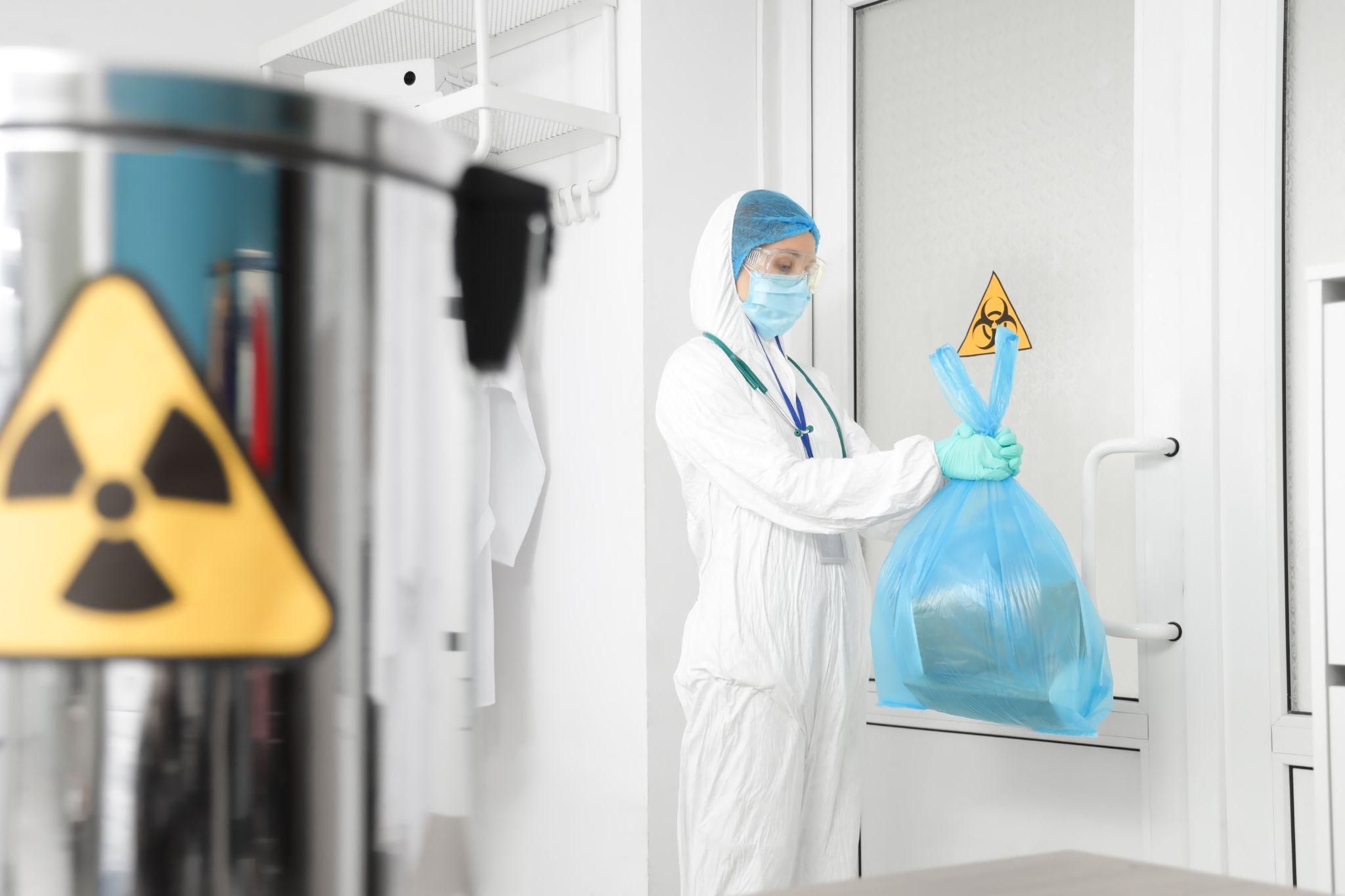CALL NOW FOR A FREE QUOTE 866.760.8194
Types of Medical Waste & How to Manage It
Every day, healthcare facilities and related businesses generate vast amounts of waste. According to the World Health Organization (WHO), around 15% of waste produced by healthcare activities is considered hazardous, whether it be infectious, toxic, carcinogenic, explosive, or radioactive.
Below, we’ll outline the main categories of regulated medical waste and how to handle each responsibly. For more detailed requirements and compliance standards for your specific situation, refer to your state’s environmental and health department regulations or speak to a qualified medical waste consultant at Global Trash Solutions.
What Is Medical Waste?
Medical waste refers to any waste material generated while diagnosing, treating, or immunizing humans or animals. It can also come from research activities, production of biologicals, or related testing and manufacturing processes.
While some of this waste is similar to ordinary municipal garbage (like packaging or food scraps), a significant portion requires specialized handling and disposal to prevent exposure to infectious agents, toxins, and other hazards.
Medical waste can come from a wide range of facilities, including:
- Hospitals, urgent care centers, and clinics
- Dental offices and outpatient surgical centers
- Research and diagnostic laboratories
- Veterinary clinics and animal hospitals
- Pharmacies, nursing homes, and long-term care facilities
- Tattoo and piercing studios
Proper management is essential not only to comply with legal and environmental regulations but also to protect employees, patients, and the surrounding community.
Main Types of Medical Waste
Each of the following types of medical waste requires distinct handling, packaging, and treatment methods:
Infectious Waste
Infectious waste includes any material that has been contaminated with substances such as bodily fluids, blood, or other potentially infectious agents. This category encompasses:
- Used bandages, dressings, and swabs
- Disposable gloves, gowns, and masks exposed to infectious materials
- Laboratory cultures, stocks, and specimens
- Waste from isolation wards
Improper handling can spread disease to healthcare workers, sanitation staff, and even the public. Infectious waste must be placed in clearly labeled, leak-proof containers—typically marked with the biohazard symbol—for safe disposal.
Hazardous Waste
Hazardous waste includes materials that are toxic, corrosive, flammable, or reactive. Common examples include:
- Chemical disinfectants and solvents
- Mercury from thermometers or broken equipment
- Heavy metals from medical devices or batteries
- Reagents and laboratory chemicals
This type of waste requires careful classification and segregation from other waste streams. Facilities must follow Environmental Protection Agency (EPA) and Occupational Safety and Health Administration (OSHA) guidelines for storage, transportation, and disposal.
Sharps Waste
Sharps waste refers to any object capable of puncturing or cutting the skin, such as:
- Needles, syringes, and scalpels
- Razor blades and lancets
- Broken glass or slides from laboratory work
Sharps pose a serious risk of needlestick injuries and potential transmission of infectious diseases like HIV or hepatitis. These items should always be disposed of immediately after use in puncture-resistant, labeled sharps containers to be collected by an authorized handler.
Pharmaceutical Waste
Pharmaceutical waste includes expired, unused, or contaminated medications and vaccines. It can also cover containers, packaging, or personal protective equipment contaminated with pharmaceutical residues.
Types of pharmaceutical waste include:
- Controlled substances and narcotics
- Cytotoxic or chemotherapy drugs
- Antibiotics and hormones
- Over-the-counter medications
Improper disposal, such as flushing pharmaceuticals down the drain, can lead to environmental contamination and harm aquatic ecosystems.
Radioactive Waste
Radioactive waste originates from diagnostic imaging, radiation therapy, and laboratory research. Examples include:
- Contaminated glassware and syringes
- Radioisotope residues
- Waste from nuclear medicine procedures
This waste must be handled with specialized containment and shielding to protect against radiation exposure. If an isotope has a short half-life, the material may be stored securely until radiation decays to safe levels. Others require transport to licensed radioactive waste facilities.
How to Manage Medical Waste Safely and Legally

Proper management of medical waste involves more than just disposal—it’s a comprehensive system designed to minimize health and environmental risks at every stage of the process.
Segregation and Labeling
Segregation begins at the point of generation. Each waste type should be separated immediately into color-coded containers:
- Red bags – Infectious or biohazardous waste
- Yellow containers – Sharps waste
- Black or clear bags – Non-hazardous general waste
- Blue containers – Pharmaceutical waste
Proper labeling ensures that waste handlers and transporters can identify and treat each category correctly.
Proper Storage and Transportation
Once segregated, medical waste must be stored in secure, designated areas that are inaccessible to unauthorized personnel or the public. Transportation should only be conducted by licensed medical waste carriers using sealed, leak-proof, puncture-resistant containers (and vehicles) that comply with Department of Transportation (DOT) and EPA standards.
Partnering With a Waste Management Provider
The most effective way to ensure compliance and efficiency is to work with a professional medical waste management company. A qualified partner can:
- Develop customized waste management plans
- Provide regulatory training for staff
- Schedule regular pickups and maintain disposal records
- Reduce costs through waste stream optimization
Hire Global Trash Solutions for Biomedical Waste Management
At Global Trash Solutions, we understand all the rules and regulations pertaining to the safe and compliant disposal of medical waste. Our team can help your business operate safely, sustainably, and cost-effectively. To learn how we can improve your waste management program, call 866-760-8194 for a free consultation with our medical waste brokers and consultants.
Recent Post
Why Should Your Business Hire a Waste Consultant?
Waste management often operates on autopilot. Trash is collected, invoices are paid, and…
Read More >Avoiding Waste Management Fines in NYC: What Businesses Need to Know
Waste management fines are becoming a real operational risk for commercial businesses across…
Read More >